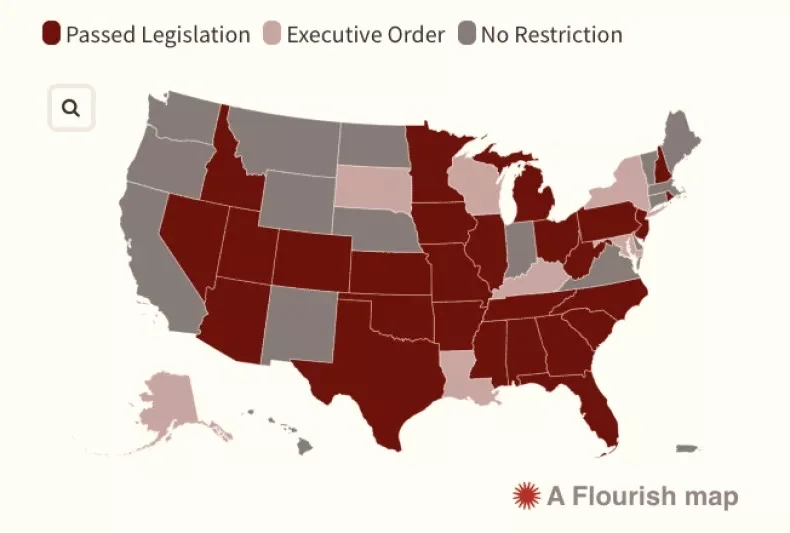Patriotism Demands Dissent: Why Anti-BDS Laws Betray the First Amendment
If Thomas Jefferson were alive today, he’d be furious.
Not because of Twitter, not because of taxes, but because in state after state, our own government is passing laws that punish Americans for expressing political beliefs. Yes, we’re talking about the anti-BDS (Boycott, Divest, Sanction) laws, statutes that force contractors and individuals to sign a loyalty oath to a foreign policy position or lose their livelihoods.
Let’s get something straight: You don’t have to support the BDS movement. You don’t have to agree with the boycott of Israel. But if you believe in the U.S. Constitution, if you believe in the revolutionary spirit of this country, then you must oppose laws that tell Americans they can’t speak, protest, or dissent.
Because that’s what the American Revolution was about.
From Revolution to Repression?
Imagine telling Samuel Adams he couldn’t boycott British goods. Imagine telling George Washington that his refusal to buy taxed tea from London made him ineligible for a government contract. That’s how absurd these laws are.
Boycotting is as American as the Boston Tea Party. Our founders used economic protest as a primary weapon against British tyranny. It wasn’t just about muskets and militias. It was about saying no loudly, defiantly, and without fear of reprisal.
Today, when American citizens peacefully boycott a foreign government’s policies, they are being punished by their own state governments. That’s not freedom. That’s not America.
What the Courts Are Saying
Thankfully, some judges still remember the Bill of Rights. Let’s break it down by state:
- Texas: In 2019, a federal court blocked the state’s anti-BDS law, stating that the First Amendment doesn’t allow the government to condition public contracts on political beliefs. This wasn’t a radical ruling. It was a basic defense of free speech.
Link - Georgia: A journalist was told he couldn’t speak at a government event unless he signed a pledge promising not to boycott Israel. He refused. The court ruled in his favor, affirming that the government has no business policing private political expression.
Link - Arkansas: The Eighth Circuit struck down a state law that required contractors to affirm they don’t support BDS. The court said it plainly - this is compelled speech, and it violates the Constitution.
Link
Selected Case Law Summaries:
- NAACP v. Claiborne Hardware Co. (1982)
Peaceful political boycotts are protected free speech under the First Amendment. - West Virginia State Board of Education v. Barnette (1943)
The government can’t force individuals to express beliefs they do not hold. - Wooley v. Maynard (1977)
The state cannot compel individuals to display messages they disagree with. - Brandenburg v. Ohio (1969)
Speech cannot be prohibited unless it is intended to incite imminent lawless action.

Why Anti-BDS Laws Are Un-American
These laws flip the founding values of our country on their head. The First Amendment isn’t just a piece of parchment. It’s the lifeblood of a free society. When we start telling people what political positions they must hold in order to work, speak, or engage with the government, we become exactly what the founders fought against.
The government doesn’t get to decide which causes are worthy of support. It doesn’t get to force your speech, muzzle your protest, or penalize your beliefs.
If we truly want to honor the Constitution, we need to call these laws what they are: unconstitutional loyalty oaths that undermine the very freedoms they claim to protect.
Final Word
John Adams once said, “Liberty, once lost, is lost forever.” Let’s not lose it on our watch. You don’t have to agree with BDS to defend the right to support it. That’s the American way. That’s the Constitutional way.
That’s freedom.